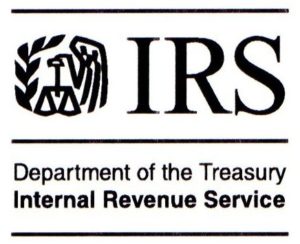Per United States tax law, each spouse is individually and jointly responsible for the full amount of tax due. In the case of tax debt between spouses (separated or divorced), the IRS may collect from one or both parties. You can file for Innocent Spouse Relief under certain conditions. Responsibility for tax, interest, and penalties that qualify for relief will fall upon your spouse. You will still have responsibility for any full or partial amount the IRS deems unqualified.
Filing Guide For Innocent Spouse Relief – Conditions To Qualification, Instructions, & Other Types Of Spouse Relief
Who Qualifies For Innocent Spouse Relief & What Are The Conditions?

Before rushing to fill out any forms, start by going over the conditions that qualify for Innocent Spouse Relief. You must meet all conditions in order to qualify, however, two other types of relief options exist for ineligible parties. Check the list of conditions below. If you find that you do not qualify, continue reading about Separation of Liability and Equitable Relief.
Applicants Must Meet The Following Conditions For Innocent Spouse Relief:
- Filed a joint return with the understatement of tax due to item errors. Erroneous items qualify under two conditions; failure by your spouse to report gross income or incorrectly reporting any deduction, credit, or property basis.
- Establish that at the time of signing the return you had no Actual Knowledge or Reason To Know about the understatement of tax. This means you did not know about the understatement, nor did you have any reasonable way of knowing.
- After taking all details of your situation into account, the IRS finds it unfair to hold you accountable for the understatement of tax.
- You and your spouse or ex-spouse have no transfer of property to one another as part of a fraudulent scheme. Fraud includes the IRS or any other third party.
Community Property Laws & Relief For Married Persons Who Did Not File Joint Returns

If you live in a state where community property laws apply and did not file a joint return, you may still be eligible for relief. Community property states are Arizona, California, Idaho, Louisiana, Nevada, New Mexico, Texas, Washington, and Wisconsin. You may check qualification conditions on page 4 of IRS Publication 971, Innocent Spouse Relief.
Separation Of Liability Relief
This type of relief is available to married couples that are either divorced or separated and who filed joint returns. IRS conditions of fraud (transfer of property to avoid taxes) and Actual Knowledge still apply. Reason To Know is no longer a concern after you provide proof of legal separation or divorce. You may also qualify for this relief if you show proof that you were not a member of the same household or if you are widowed. We have an upcoming guide that will cover Separation Of Liability Relief.
Equitable Relief

This third option applies to spouses who do not qualify for Innocent Spouse Relief or Separation Of Liability Relief. If you did not file a joint return or qualify for community property, you may be eligible for Equitable Relief. In addition to the list of conditions on pages 8 & 9 of Publication 971, the IRS will consider marital status and economic hardship when determining whether to grant relief. See the Equitable relief section of our tax help guide.
Instructions For Filing Form 8857 – Innocent Spouse Relief
Use Of Form 8857
Use Form 8857, Request For Innocent Spouse Relief, to request relief for any of the types that apply above. If the relief you are requesting is for a duration of over 6 tax years, you must file an additional 8857 form. Once the IRS receives your completed 8857 form, they will review and notify you of your qualification status.
When Is The Right Time To File Form 8857?

The IRS recommends you file Form 8857 as soon as you receive notice of tax liability. Generally speaking, you have two years from the time of liability notice to file. However, certain filing exceptions can reduce the deadline. Even if you do not have all documentation, the IRS suggests filing to avoid passing any deadlines.
Can I Get Help Filing Form 8857?
Yes! You can get help filling in a couple of different ways. First, you can contact one of our expert tax resolution attorneys. Remove hours of time from your life spent on the phone with the IRS, and let our experts take care of it.
Contact Your Tax Resolution Professional

The second option is to handle the case yourself directly with the IRS. Sometimes this works out, especially if the case is very clear.
Besides Form 8857 and Publication 971, there are some other helpful sources of material from the IRS. If you are taking the “do it yourself road”, the following IRS publications may help explain how to deal with your exact situation:
- 504 – Divorced Or Separated Individuals
- 555 – Community Property
- 556 – Examination of Returns, Appeal Rights, and Claims for Refund
- 594 – The IRS Collection Process
Concerns About Spousal Contact
The IRS has an obligation by law to contact your spouse or ex-spouse. Spousal contact may be a concern, especially for victims of spousal abuse or domestic violence. Because it’s federal law, the IRS may make no exception but they do follow a strict procedure.

In the interest of protecting your privacy, here are the details the IRS will never share with your spouse.
- Your Current Name
- Address
- Any Of Your Phone Numbers
- Your Employer
- Your Income
- Financial Assets
The IRS may share any other information you provide on Form 8857 with your spouse or ex-spouse. After you file, the IRS contacts your spouse or ex and allows them to participate in the process. They may also receive notice of initial and final determination by the IRS.
*NOTE: This article is intended as a guide and is not a legal document. Please contact us for more details. If you think you could benefit from the help of a tax attorney, schedule a consultation with one of our expert tax attorneys here or call us at (888) 515-4829.

Pingback: Community Property Laws and Tax Debt - Relief From Taxable Items